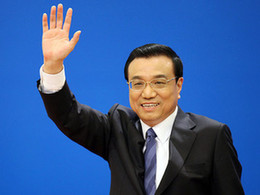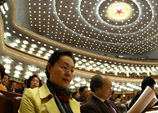NPC FAQs
How does the NPC relate to other state organs?
The National People's Congress represents the highest level of state power.
What are the powers and functions of the NPC Standing Committee?
According to the Constitution and the statutes of the National People's Congress, the NPC Standing Committee has powers and functions as follows.
What are the legitimate sphere of influence of the NPC and its Standing Committee?
The Constitution sets out the framework within which all state organs at various levels have powers to enact laws commensurate with their status and legitimate spheres of influence.
What are the NPC procedures for the proposal and deliberation of bills?
Bills submitted for consideration by the National People's Congress can come from both NPC and government departmental sources. The detailed procedures are laid out in the provisions of the Organic Law of the National People's Congress and the Rules of Procedure for the National People's Congress.
What are the supervisory mechanisms of the NPC and its Standing Committee?
The National People's Congress and its Standing Committee have established various mechanisms and procedures necessary for it to exercise its supervisory role fully and effectively.
How are the NPC and its Standing Committee organized?
The National People's Congress, the highest organ of state power, is composed of some 3,000 deputies. Deputies to the NPC are organized into delegations according to the units elected them. A Presidium is elected from among the NPC deputies at a preliminary meeting and provides the chair for plenary sessions of the NPC. Various special committees are established to assist the NPC in its legislative work.
What forms do NPC meetings take and who chairs them?
NPC meetings may take the form of preliminary meetings, presidium meetings, plenary sessions of the full NPC, meetings of delegations and closed-door sessions.
How often are NPC sessions held and who convenes them?
In accordance with the provisions of the Constitution, NPC sessions are held annually and are convened by the NPC Standing Committee.
What happens at a plenary session of the NPC?
Delegation meetings usually take one of two forms, plenary meetings and group meetings.
What happens at the delegation meetings?
Delegation meetings usually take one of two forms, plenary meetings and group meetings.
What are the responsibilities of the NPC Presidium?
What are the responsibilities of the NPC Presidium?
According to the Rules of Procedure, members of the Presidium elected at the first meeting of the Presidium will take it in turns to chair the various plenary sessions of the NPC.
How is the NPC Presidium elected and who are its members?
The Presidium plays a leading role in organizing the work of the NPC and provides the chairs of meetings. Its members are elected from among the deputies at a preliminary meeting.
- According to the NPC Rules of Procedure, the heads and deputy heads of the various NPC delegations are elected at the plenary sessions of their delegations. To be eligible for election they must be deputies to the National People's Congress.
What sort of body is the NPC Standing Committee?
The Standing Committee of the National People's Congress is the permanent arm of the NPC. It is located in offices in the Great Hall of the People in Beijing. The Standing Committee of the NPC is composed of the Chair, Vice Chairs, Secretary-General and members.
How long do members of the NPC Standing Committee serve?
How long do members of the NPC Standing Committee serve?
The term of office for members of the Standing Committee is five years and corresponds with the tenure of members of the NPC itself. The Chair and Vice Chairs may not serve more than two consecutive terms.
+ MoreHighlights of the Sessions
- Fiscal, tax, financial reforms high on agenda
- Premier Li calls for new progress in mainland-Taiwan ties
- China, U.S. should expand common interests: Premier Li
- China to better handle relations between govt, market
- Premier: GDP target flexible, stresses employment
- Deputies eye national anti-terrorism law








